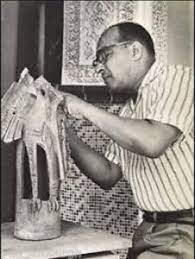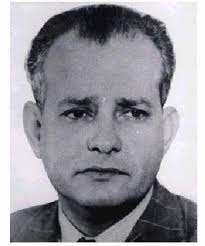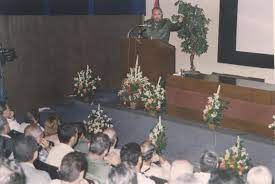
Havana ephemeris. August 21.
1717. The first uprising of the Cuban vegueros takes place.

An approximate of five hundred workers from different places outside the walls of Havana armed with machetes gathered on the hill of Jesús del Monte.
As part of the reforms directed by King Felipe V, he promulgated, on April 11, 1717, the Royal Decree establishing the tobacconist in Cuba. The Factory was created as a monopoly institution in charge of the purchase and marketing of tobacco on the island, as well as the establishment of prices, quantities and other requirements. Any trade that was not with it was prohibited and the regulation of the vegueros began to bring their products to the designated buyers.
The application of the measure caused discomfort among the producers, but the arbitrariness with which the officials in charge immediately made it worse, forcing them to sell at prices lower than those established, this led to successive complaints and protests.
1966. Cienfuegos sculptor Mateo Torriente Bécquer dies in Havana.

His work delved into the most modern artistic languages that were contemporary to him, fundamentally those of surrealism and abstraction. He mixed Cuban and foreign artistic influences in his work. These were acquired during some trips he made to Europe. In Mexico he made friends with renowned figures in the cultural field such as Frida Kahlo. At the core of his production is an acute symbiosis of our environment and way of being. In this way, musical instruments, work tools in the countryside and the city, as well as all kinds of suggestive auxiliary objects, animals and Cuban forests are represented full of artistic content. Likewise, in his works human beings and syncretic cults of African roots are present.
One of his main works was carried out in front of the emblematic Palacio de Valle de Cienfuegos. His main collection is in the National Museum of Fine Arts in Havana.
His birth took place in the town of Palmira, on September 20, 1910 in the current province of Cienfuegos.
2000. Commander in Chief Fidel Castro speaks at the ceremony for the centenary of the birth of scientist Pedro Kouri Esmeja, a great figure in world medical parasitology.

 The event was held at the headquarters in Havana of the Institute of Tropical Medicine that is identified by the name of that remarkable scientist. Fidel is about the health catastrophe that threatens our planet. He congratulates the Institute of Tropical Medicine for his research successes. He also refers to the Health Program carried out by Cuban doctors in African and Latin American countries and expresses that he is creating a doctrine, a new concept of medical care.
The event was held at the headquarters in Havana of the Institute of Tropical Medicine that is identified by the name of that remarkable scientist. Fidel is about the health catastrophe that threatens our planet. He congratulates the Institute of Tropical Medicine for his research successes. He also refers to the Health Program carried out by Cuban doctors in African and Latin American countries and expresses that he is creating a doctrine, a new concept of medical care.
He also highlights: "The Institute of Tropical Medicine is now needed more by the Third World than by Cuba."